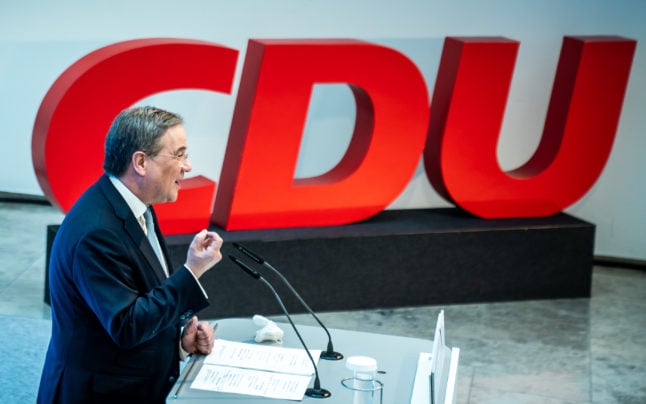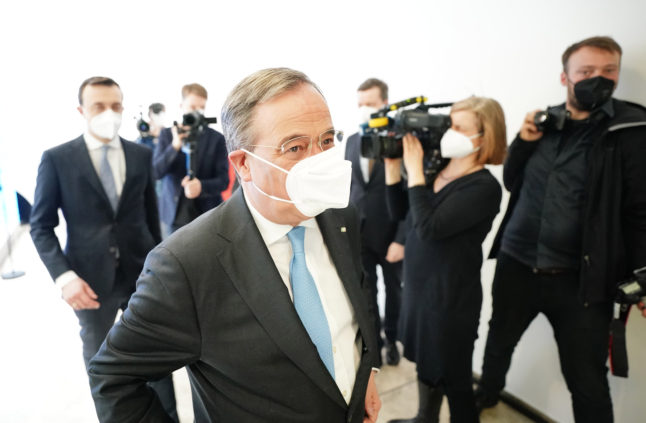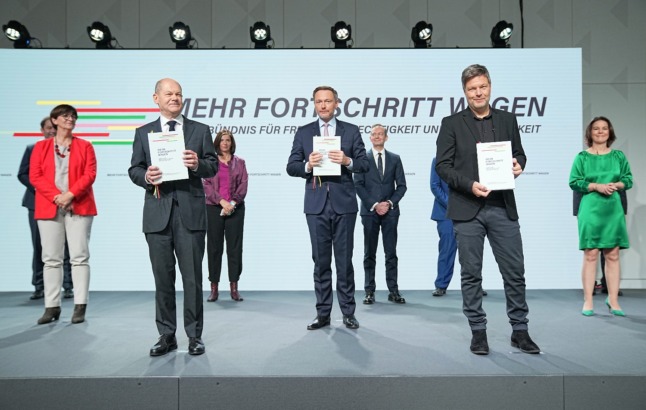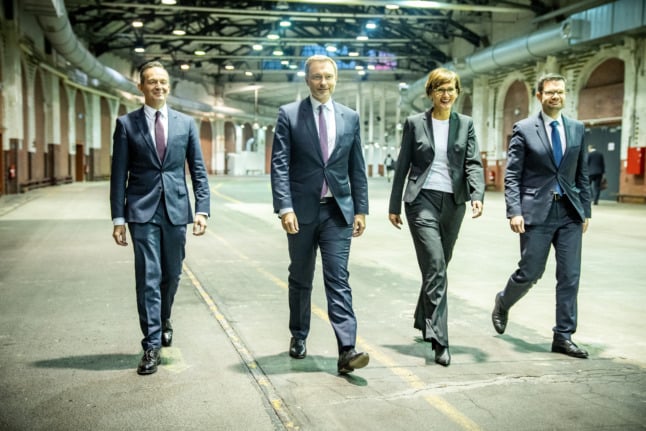But the affable Merkel loyalist staged a stunning comeback to be confirmed on Tuesday as the conservative candidate for chancellor in this year’s election, beating popular favourite Markus Söder.
Leading the CDU and the CSU, its smaller Bavarian sister party, into the general election on September 26th will be a gargantuan task, with the parties facing dismal ratings amid anger over Germany’s faltering pandemic management.
Laschet is also deeply unpopular with the public himself, with just 12 percent of Germans saying they thought he would be a good chancellor candidate in one recent survey for business daily Handelsblatt.
READ ALSO: German conservatives fear ‘polarisation’ over Merkel succession
But coming back from behind has always been a speciality for Laschet, as Der Spiegel news magazine observed when he beat the odds to be elected as head of the CDU in January.
The 60-year-old political moderate with a reputation for pragmatism has an uncanny ability to “sit out his opponents”, the magazine noted.
“He does not aim for a quick knockout, but wears down his opponents slowly, continuously, with great endurance.”
Flip-flopping
He also outperformed the polls to deliver a strong performance for the CDU last year in a regional election in Germany’s most populous state of North Rhine-Westphalia, where he is state premier.
A sworn Merkel loyalist, Laschet famously backed the chancellor during the fallout from the 2015 refugee crisis.

But he appeared to chart a course away from Merkel in March when he defied the chancellor’s pleas for harder shutdown measures from the leaders of Germany’s 16 states.
Laschet defended North Rhine-Westphalia’s broad interpretation of national virus measures, calling for “more freedom and flexibility”.
He was also panned on social media for saying he needed time to “think about” how to deal with Germany’s raging third wave, and accused of flip-flopping when he called for a “bridge lockdown” until more people were vaccinated.
The daily Süddeutsche Zeitung has noted that he is seen as “indecisive, sometimes acting impulsively”.
‘Passionate European’
Laschet was born in Aachen, the spa city in western Germany near the border with Belgium and the Netherlands.
A sworn defender of multiculturalism, he has a reputation for being even more pro-migration than Merkel.
The father of three is a great fan of Charlemagne, the king of the Franks credited with uniting Europe whose empire was based in Aachen, and his family has even said they are direct descendants.
He is a devout Catholic and met his wife — who is of French-speaking Wallonian origin — singing in a church choir.
READ ALSO: Merkel’s conservatives confirm Laschet for chancellor candidate as Söder concedes
But Laschet also plays up his common man image, telling party members in January how his father fed the family digging for coal.
“When you’re down in the mine, it doesn’t matter where your colleague comes from, what his religion is or what he looks like. What is important is, can you rely on him,” he said.
Laschet studied law and political science in Munich and Bonn before working as a journalist for Bavarian radio stations and television, and as the editor of a Catholic newspaper.
A fluent French speaker and self-described “passionate European”, he was elected to the Bundestag in 1994 and to the European Parliament in 1999.
He became head of the CDU in North Rhine-Westphalia in 2012 and has been state premier since 2017 — an election he won coming up from behind in the polls.
By Femke Colbourne




 Please whitelist us to continue reading.
Please whitelist us to continue reading.
Laschet is the worst choice the CDU-CSU could have made to replace Angela Merkel. Markus Söder could have carried the party to be the next chancellor. This guy should stay in NRW and plan the next Karneval. Only 11% of the peoplel like him. This is bad joke.
“Bad joke” says ‘deu152’. But wouldn’t it be good, just once in a while, to have a real human being in charge, rather than a grasping, slippery pole-climbing, self-serving individual? Lachet has a proven track record as a political warrior and I like the label that he’s a man ‘too nice for politics’. Söder, on the other hand is highly ambitious and occasionally displays a touch of the demagogue. You wonder what he could turn into if given the full reins of power.